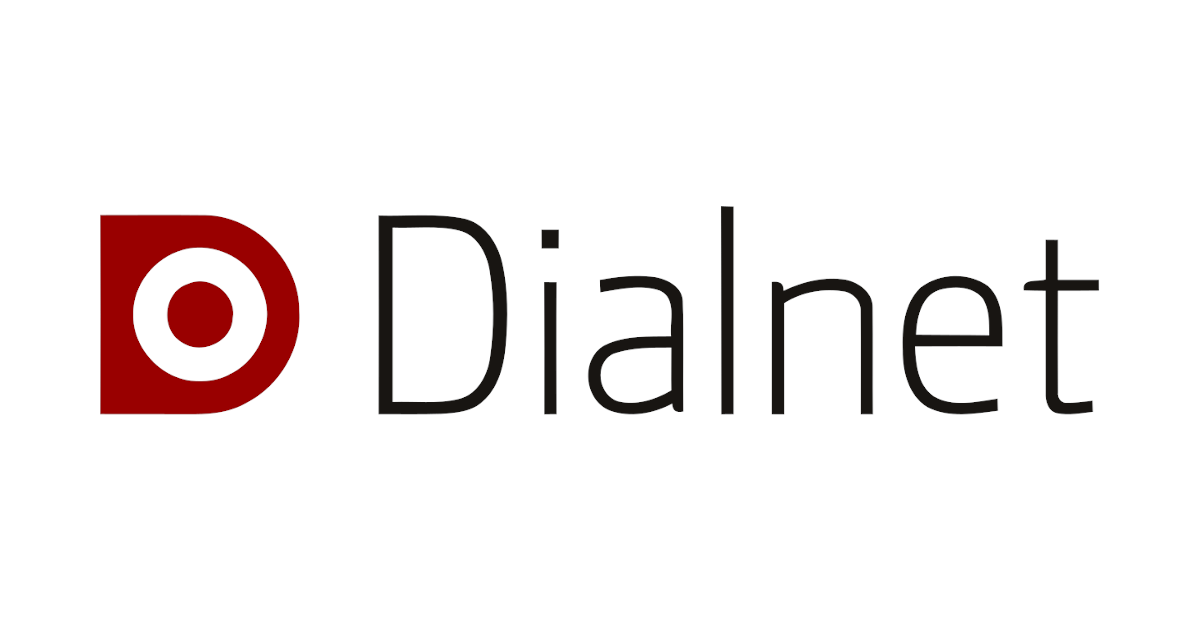Organizational psychology in the engagement, satisfaction, and performance of merchant seamen
DOI:
https://doi.org/10.70219/mby-232025-382Keywords:
job engagement, organizational psychology, merchant navy, job satisfaction, motivational theoriesAbstract
This article explores organizational psychology theories to understand and improve the work engagement, satisfaction, and professional performance of merchant marine officers. The objective of this research is to identify organizational psychology theories that address effective strategies to improve work engagement, satisfaction, and professional performance in the merchant marine, considering the specificities of the maritime environment and the diverse motivations and needs of this group. Through a qualitative documentary review, eight theories were analyzed, assessing their relevance and applicability to the maritime context. The study highlights how motivational factors, hierarchical needs, perceived equity, flow states, autonomy, and organizational support influence the engagement of these professionals. The study explains the need to adapt these theories to the specific conditions of the maritime environment to improve talent management strategies in this professional sector. The conclusions affirm the multidimensionality of engagement and explain how the theories provide a basis for understanding the factors that influence officer engagement. Although the need to adapt the principles of these theories to the specific context of the merchant marine is pointed out as a limitation, the study manages to identify the theoretical contributions and the areas that need attention to improve the understanding of engagement in this specific group.
Downloads
References
Agurto Ruiz, K., Mogollón, F., & Castillo, L. (2020). El papel del engagement ocupacional como alternativa para mejorar la satisfacción laboral de los colaboradores. Revista Universidad y Sociedad, 12(4), 112-119. https://n9.cl/u1hdb
Almanza Jiménez, R., Calderón Campos, P., Vargas Hernández, J., Casas Cárdenas, R., & Palomares Salceda, F. (2019). Aprendizaje y Desempeño Organizacional Bajo el Enfoque de las Teorías Organizacionales. Revista De Economía & Administración, 13(1), 84-94. https://goo.su/A952
Araya-Castillo, L., & Pedreros-Gajardo, M. (2013). Análisis de las teorías de la motivación de contenido: Una aplicación al mercado laboral de Chile del año 2009. Ciencias Sociales, IV(142), 45-61. https://goo.su/ZSuUzH
Cárdenas Aguilar, T., & Jaik Dipp, A. (2014). Inventario para la medición del engagement (Ilusión por el trabajo). Psicogente, 17(32), 294-306. https://n9.cl/o4xxx1
Carotenuto, A., Molino, I., Fasanaro, A. M., & Amenta, F. (2012). Psychological stress in seafarers: a review. International maritime health, 63(4), 188-194. https://n9.cl/l77in
Chung, Y. S., Lee, P. T. W., & Lee, J. K. (2017). Burnout in seafarers: its antecedents and effects on incidents at sea. Maritime Policy & Management, 44(7), 916-931. https://doi.org/10.1080/03088839.2017.1366672
Contreras Quevedo, C.A. (2015). Determinación del nivel de Engagement laboral en trabajadores de una planta de producción de petróleo y gas costa afuera en México. Ciencia y Trabajo, 17(52), 37-42. http://dx.doi.org/10.4067/S0718-24492015000100008
Da Rosa Tolfo, S., Chalfin Coutinho, M., Baasch, D., & Soares Cugnier, J. (2011). Sentidos y significados del trabajo: un análisis con base en diferentes perspectivas teórico-epistemológicas en Psicología. Universitas Psychologica, 10(1), 175-188. https://n9.cl/k8ay3
Decuypere, A., & Schaufeli, W. (2020). Leadership and work engagement: Exploring explanatory mechanisms. German Journal of Human Resource Management, 34(1), 69-95. https://doi.org/10.1177/2397002219892197
Durán, S. (05 de Noviembre de 2023). Teoría del Intercambio Social de Thibaut y Kelley (Teoría del Intercambio Social). www.eurekando.org: https://n9.cl/02n7n
García, J. (30 de julio de 2023). Pirámide de Maslow: la jerarquía de las necesidades humanas. Psicología y Mente. https://n9.cl/jtgf
González Acabal, M. (2014). Estrés y desempeño laboral (estudio realizado en Serviteca Altense de Quetzaltenango). [Tesis de Licenciatura]. Universidad Rafael Landívar, Campus de Quetzaltenango, Facultad de Humanidades, Guatemala. https://n9.cl/ehiqt
Herzberg, F. (1954). La teoría de la motivación-higiene. The World of Publishing Company, 10, 71-91. https://n9.cl/bsezz
Iversen, R. T. (2012). The mental health of seafarers. International maritime health, 63(2), 78-89. https://n9.cl/i6lb06
Jonglertmontree, W., Kaewboonchoo, O., Morioka, I., & Boonyamalik, P. (2022). Mental health problems and their related factors among seafarers: a scoping review. BMC public health, 22(1), 282. https://doi.org/10.1186/s12889-022-12713-z
Kim, M., Beehr, T. A., Brough, P., & Troth, A. C. (2025). Job insecurity keeps me awake at night: is my supervisor making me insecure? Current Psychology, 1-14. https://doi.org/10.1007/s12144-025-07632-2
Lawter, L., Kopelman, R., & Prottas, D. (2015). McGregor's theory X/Y and job performance: A multilevel, multi-source analysis. Journal of Managerial Issues, 27(1-4), 84-101. https://www.jstor.org/stable/44113685
Mabazo, M. H., & Van der Walt, F. (2024). Nurturing perseverance: The influence of workplace spirituality. SA Journal of Industrial Psychology, 50, 2096. https://hdl.handle.net/10520/ejc-psyc_v50_n1_a2096
Madero-Gómez, S.M, & Rodríguez-Delgado, D. (2018). Relación entre las teorías X y Y de McGregor, las formas de retribuir y la satisfacción de las personas en su trabajo. Scielo, 13(1), 5-25. https://n9.cl/miwvhg
Naranjo, M. (2009). Motivación: perspectivas teóricas y algunas consideraciones de su importancia en el ámbito educativo. Educación, 33(2), 153-170. https://doi.org/10.15517/revedu.v33i2.510
Naranjo-Pereira, D., & Yaber, G. (2022). Apoyo Organizacional Percibido: Latinoamérica analizada en un lustro. Academia y Negocio, 8(2), 183-196. https://doi.org/https://www.redalyc.org/journal/5608/560872306006/html/
Oldenburg, M., Jensen, H. J., & Wegner, R. (2013). Burnout syndrome in seafarers in the merchant marine service. International Archives of Occupational and Environmental Health, 86, 407-416. https://doi.org/10.1007/s00420-012-0771-7
Orgambídez-Ramos, A., Pérez-Moreno, P. J., Borrego-Alés, Y. (2015). Estrés de rol y satisfacción laboral: examinando el papel mediador del engagement en el trabajo. Revista de Psicología del Trabajo y de las Organizaciones , 31 (2), 69-77. https://dx.doi.org/10.1016/j.rpto.2015.04.001
Pink, D. (2012). La sorprendente verdad que nos motiva. Editorial Gestión 2000.
Rodríguez, G. (2011). La experimentación de la neguentropía psíquica asociada al reto creativo. Una revisión de la teoría del flujo dentro del oficio publicitario en Bogotá. Poliantea, 7(13), 77-94. http://dx.doi.org/10.15765/plnt.v7i13.141
Rodríguez, J., Mestre, J., Walliser, J., & Rasero, J. (2014). Creación de una lista de adjetivos para medir el desempeño de los Oficiales de Marina Mercante. Conference: XII National Meeting on Social Psychology, At Sevilla-Spain. https://n9.cl/0bxdql
Ruiz Mitjana, L. (06 de septiembre de 2019). Psicología y Mente. https://psicologiaymente.com/social/teoria-de-equidad
Salanova, M., Bresó, E., & Schaufeli, W. (2009). Hacia un modelo espiral de las creencias de eficacia en el estudio del burnout y del engagement. Ansiedad y Estrés, 11, 215-231. https://n9.cl/7ox05
Sąlyga, J., & Kušleikaitė, D. (2011). Factors influencing psychoemotional strain and fatigue, and relationship of these factors with health complaints at sea among Lithuanian seafarers. Medicina (Kaunas), 47(12), 675-81. https://goo.su/PYhp7k
Slišković, A., & Penezić, Z (2016). Testing the associations between diferent aspects of seafarers’ employment contract and on-board internet access and their job and life satisfaction and health. Arh Hig Rada Toksikol. 2016;67(4),351–61. https://doi.org/10.1515/aiht-2016-67-2785
Slišković, A., & Penezić, Z. (2015). Occupational stressors, risks and health in the seafaring population. Review of Psychology, 22(1-2), 29-40. http://dx.doi.org/10.21465/rp0022.0004
Tavacioğlu, L., Umut, T. A. Ç., Gökmen, N., Burak, U. Z. U. N., & Tirgil, U. (2019). Leadership in maritime: Assessing the effect of leadership motivation and fear. Bilge International Journal of Science and Technology Research, 3(1), 51-57. http://dx.doi.org/10.30516/bilgesci.489067
Zagenczyk, T. J., Purvis, R. L., Cruz, K. S., Thoroughgood, C. N., & Sawyer, K. B. (2021). Context and social exchange: perceived ethical climate strengthens the relationships between perceived organizational support and organizational identification and commitment. The International Journal of Human Resource Management, 32(22), 4752-4771. https://doi.org/10.1080/09585192.2019.1706618












